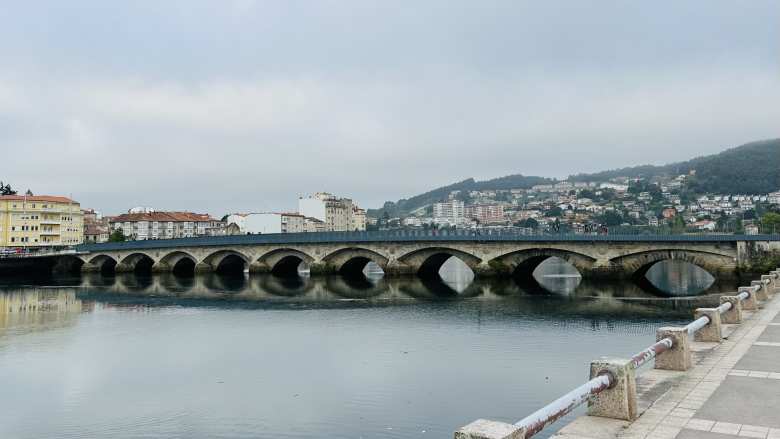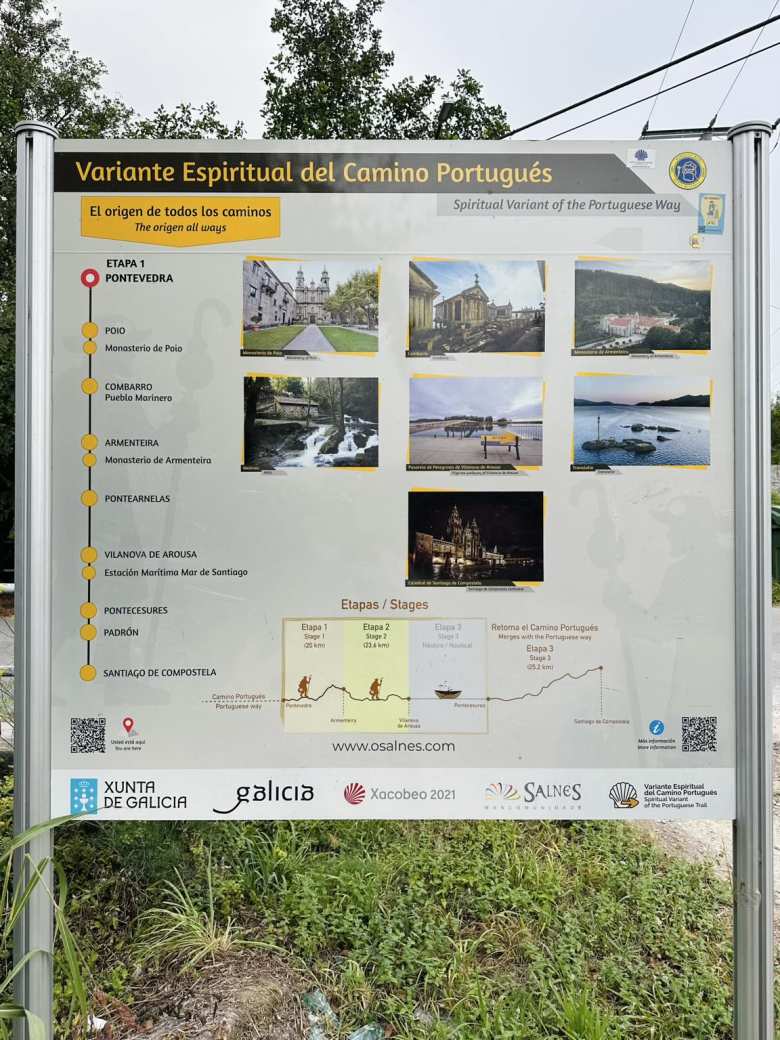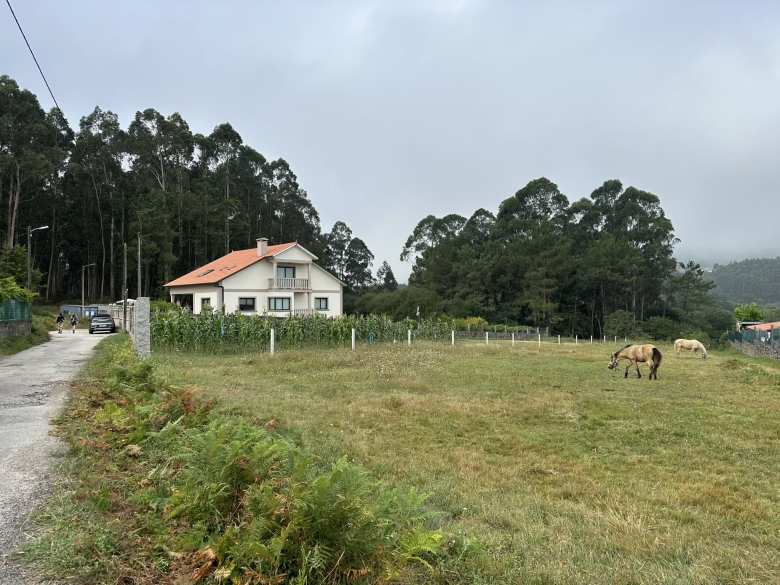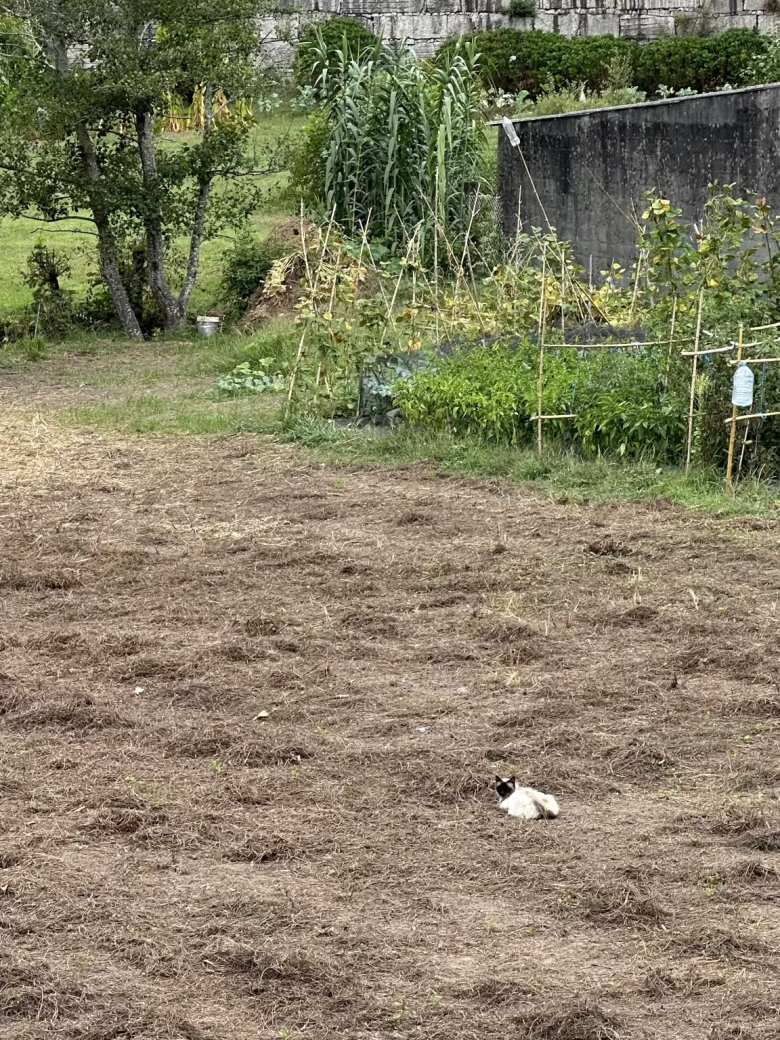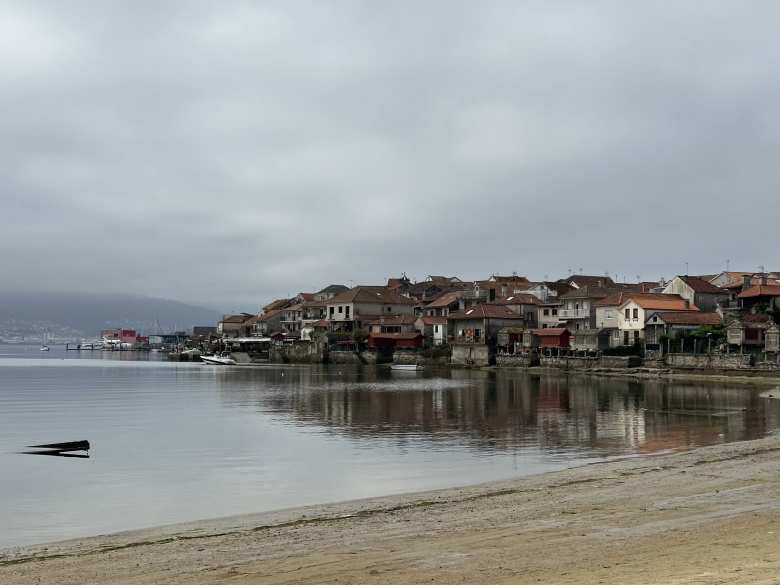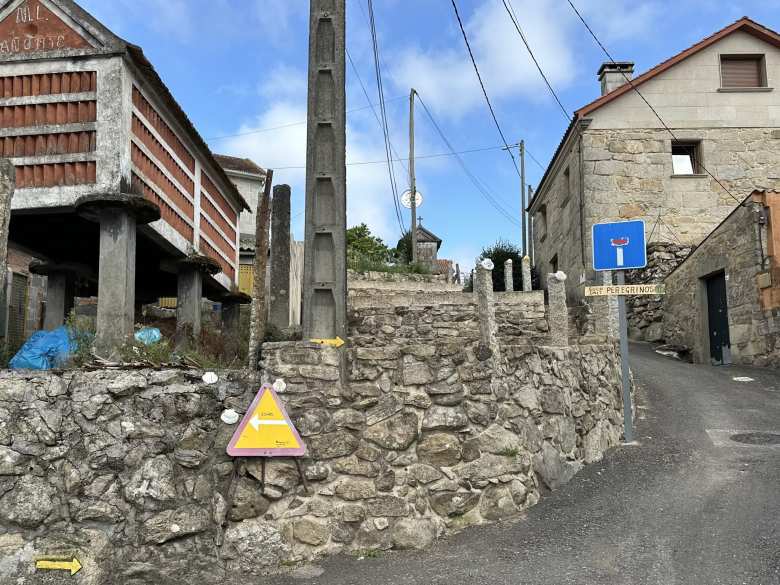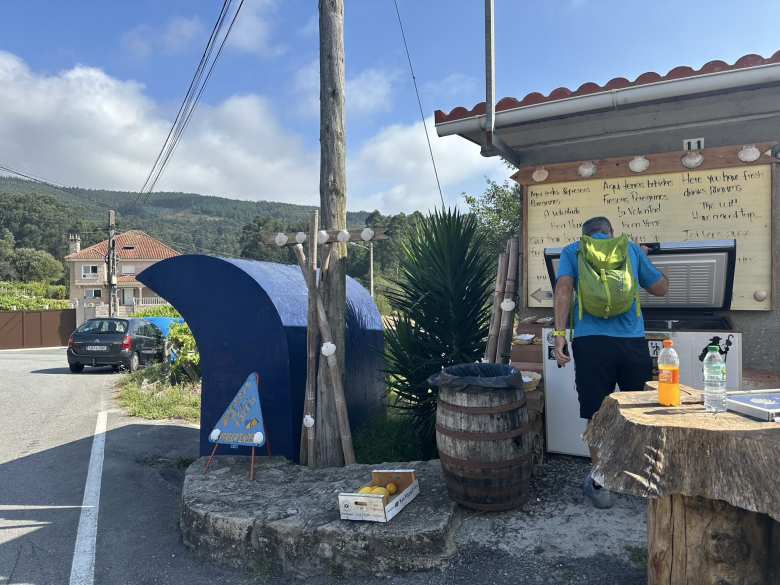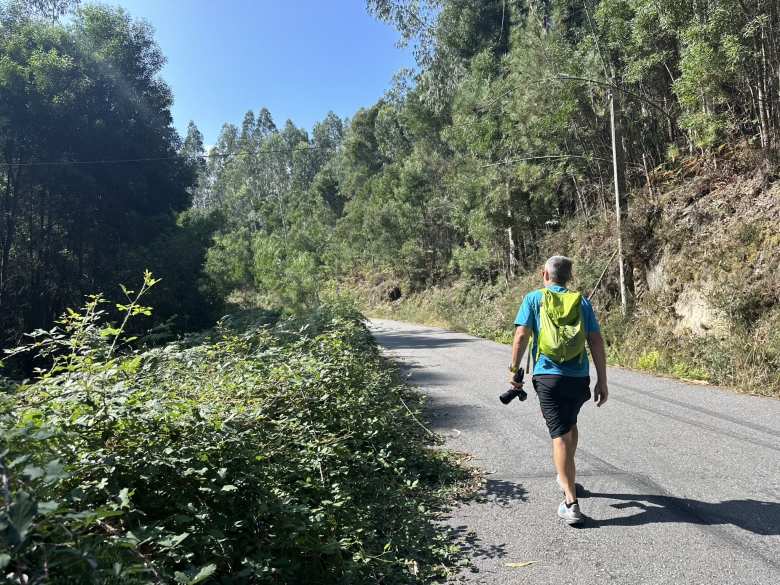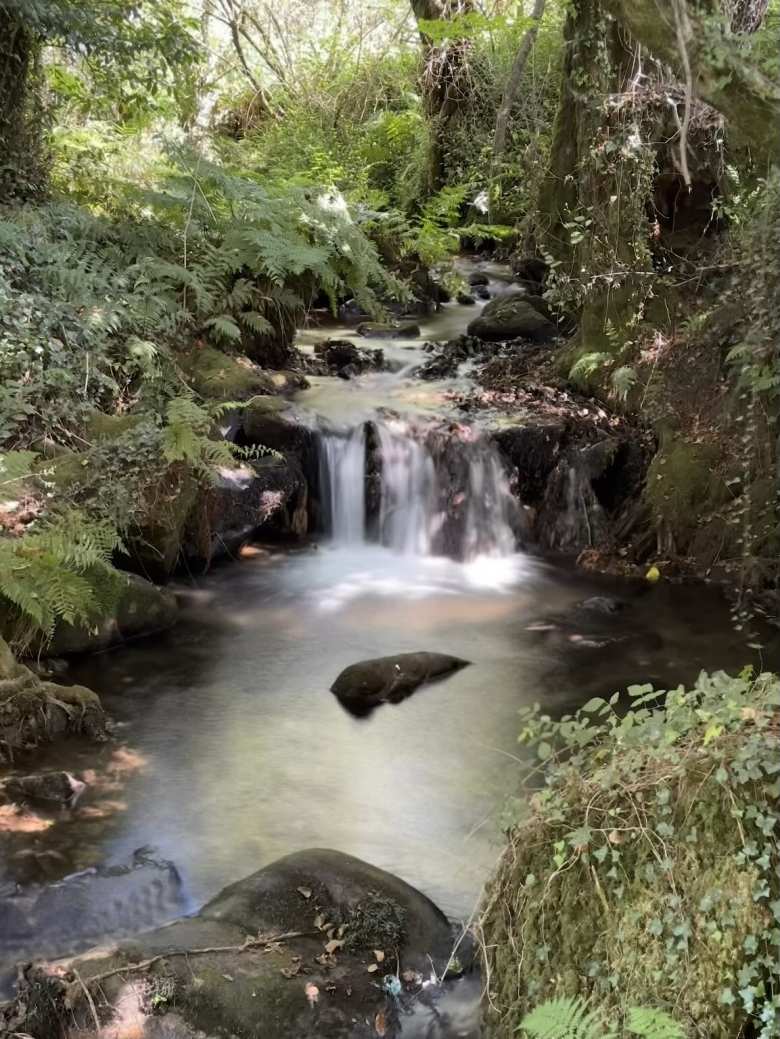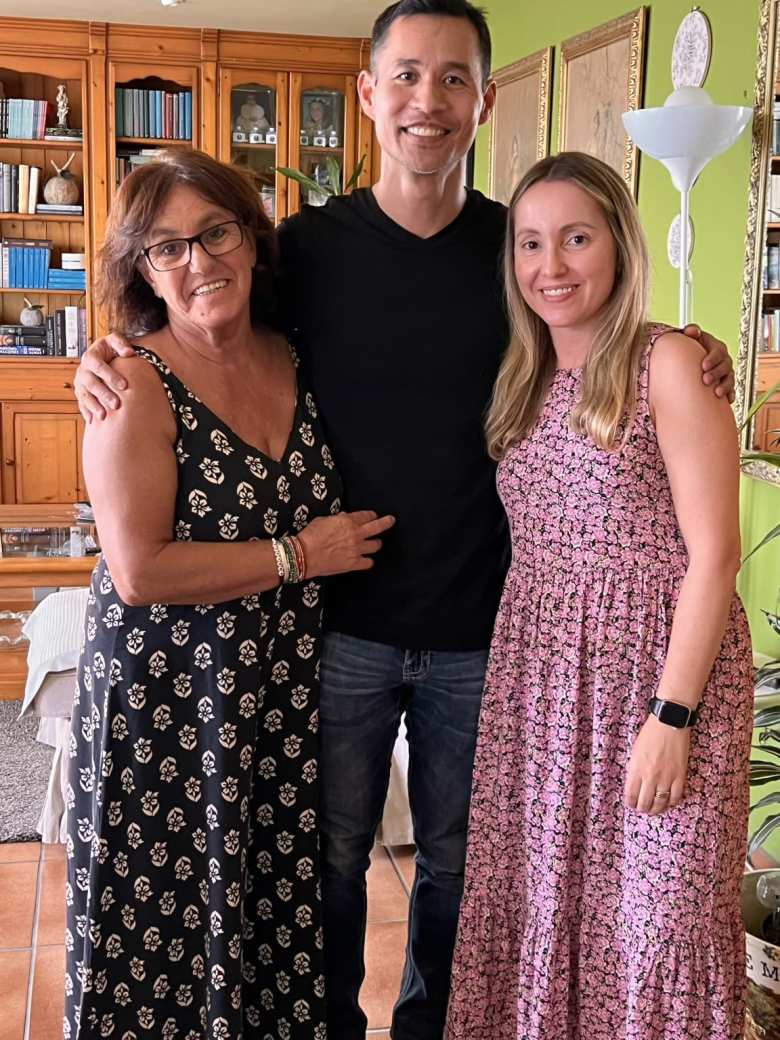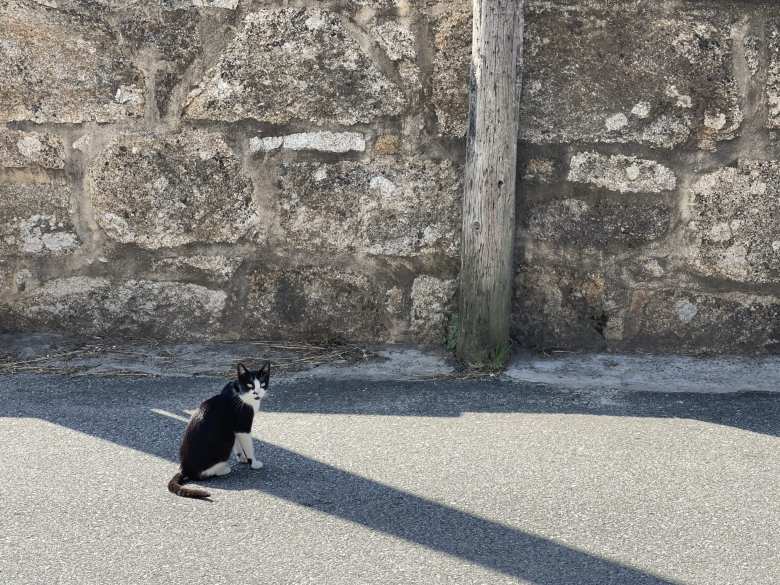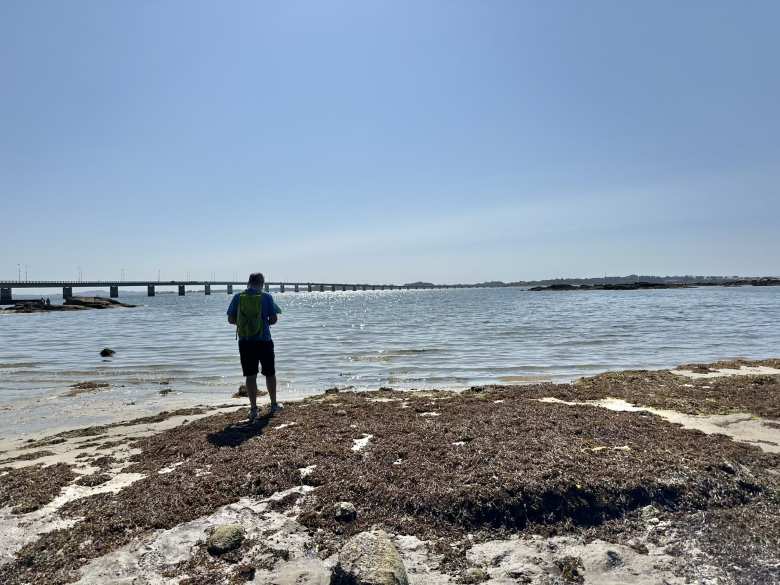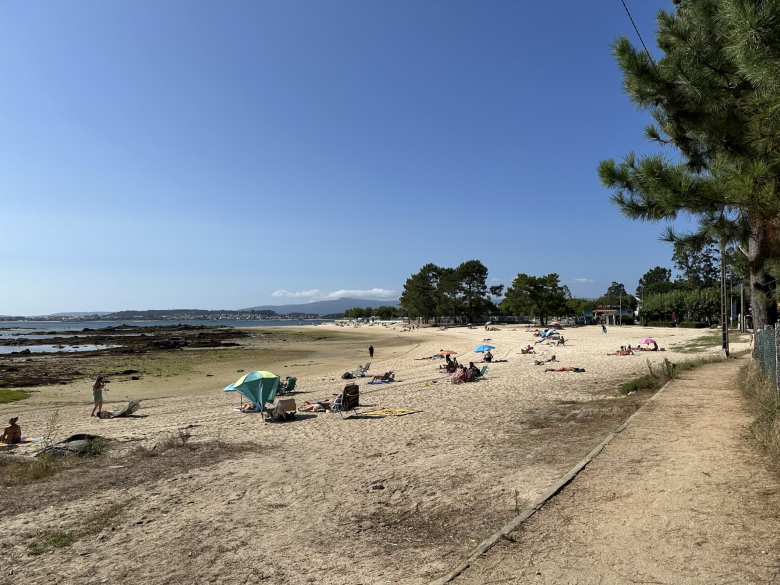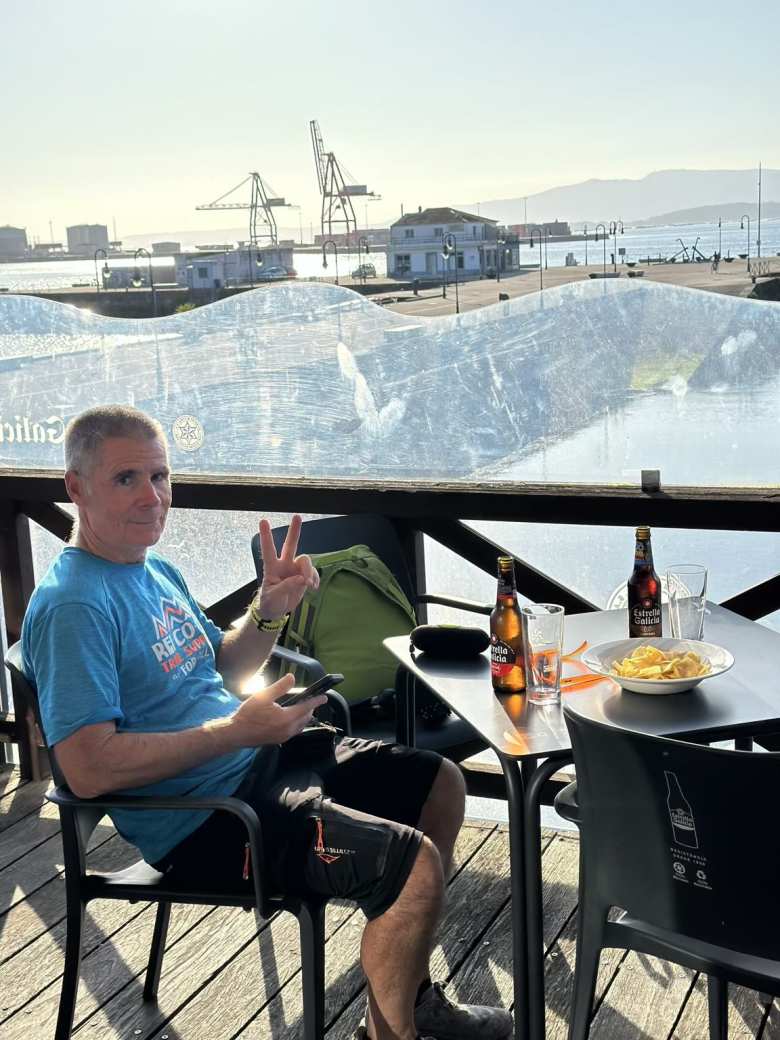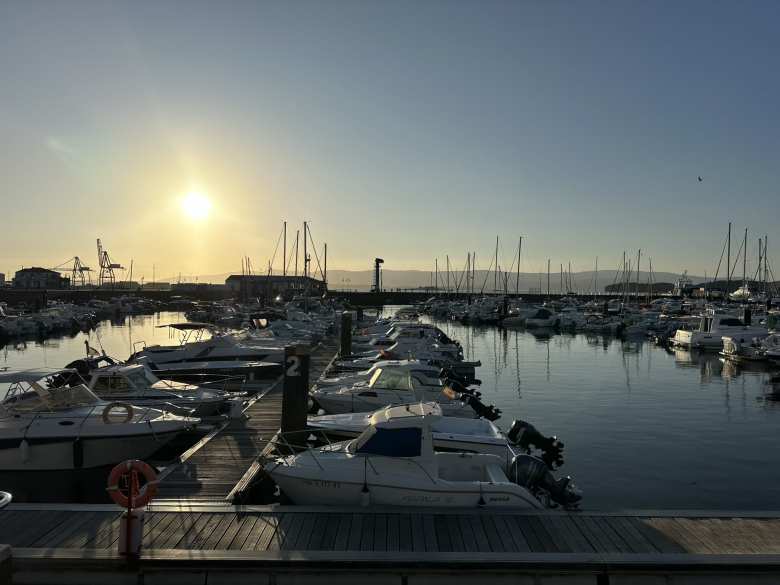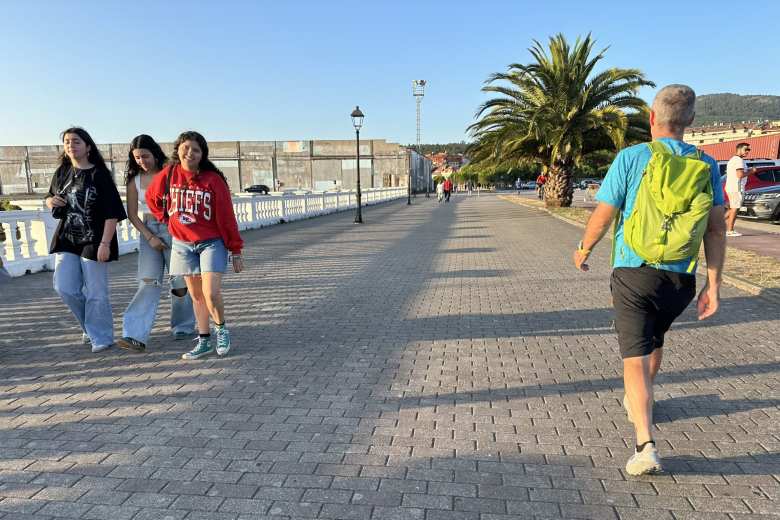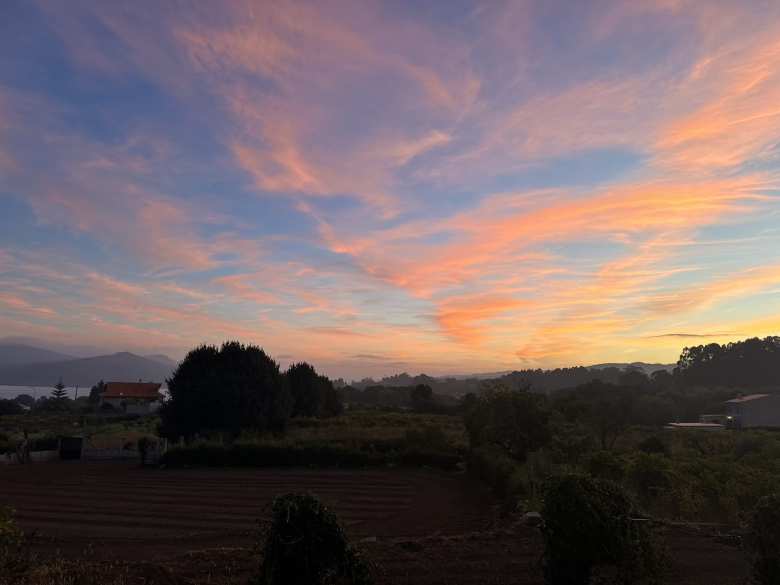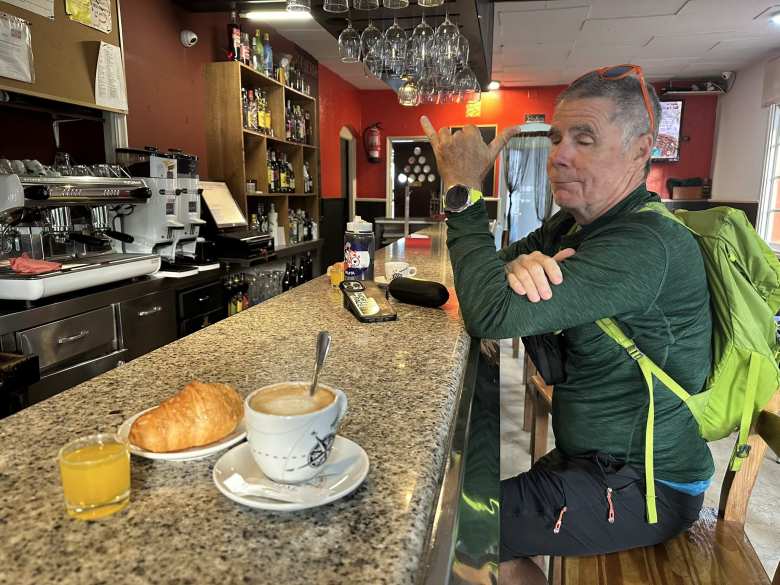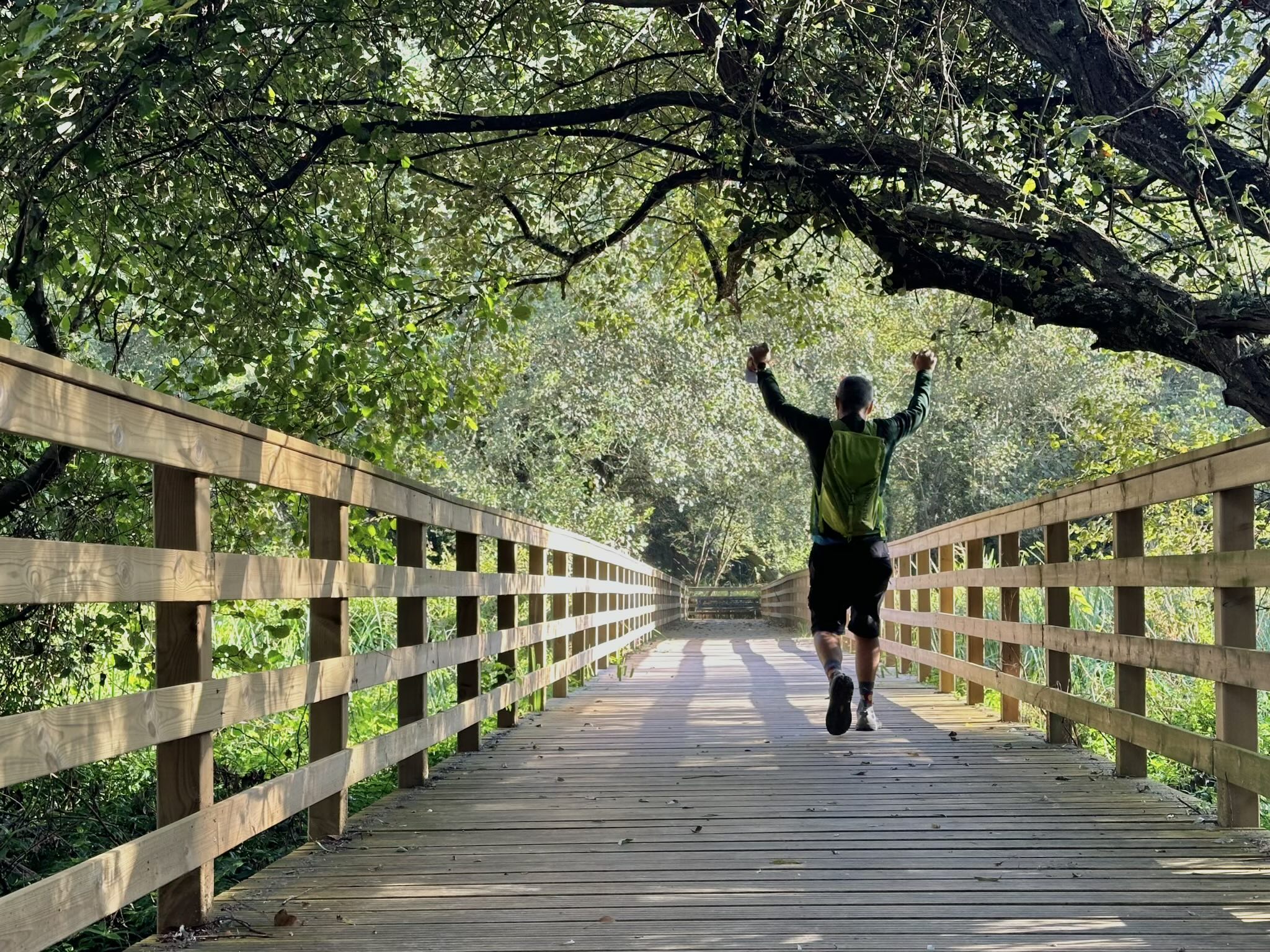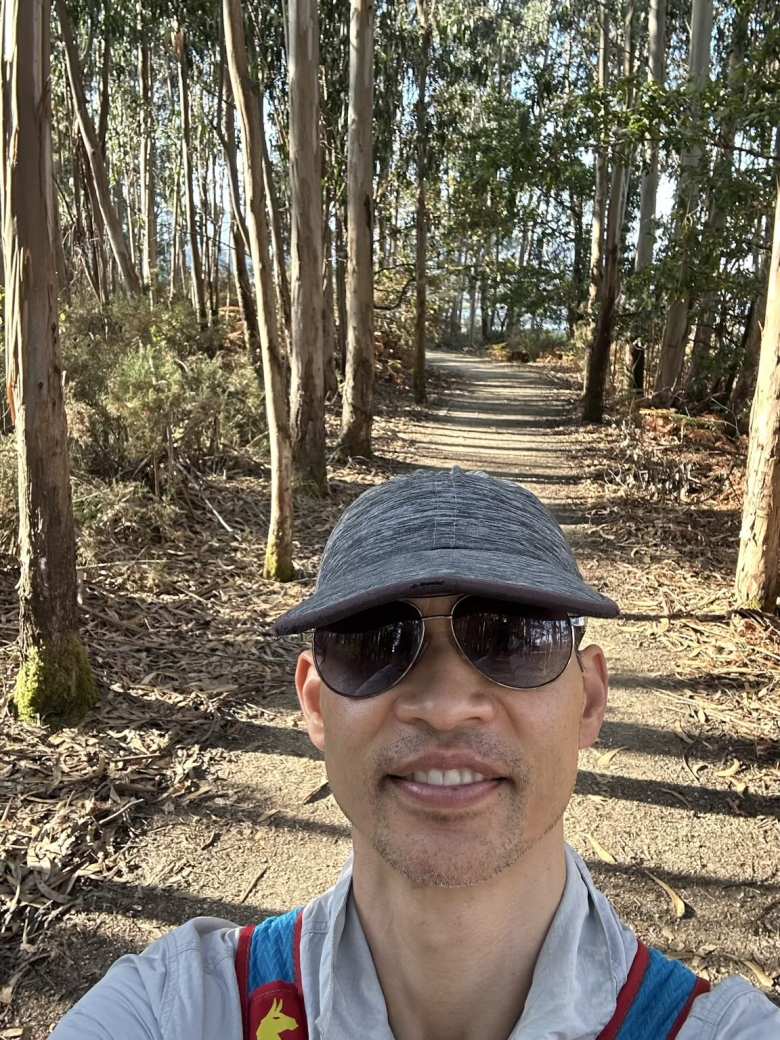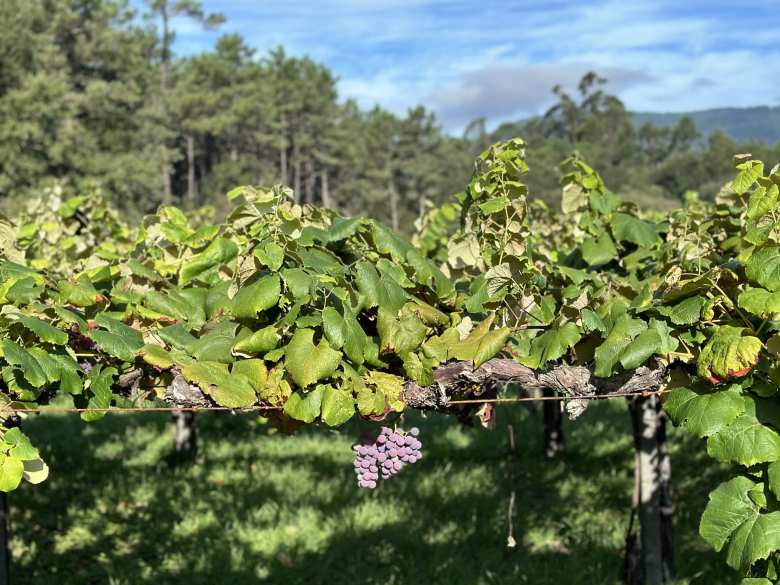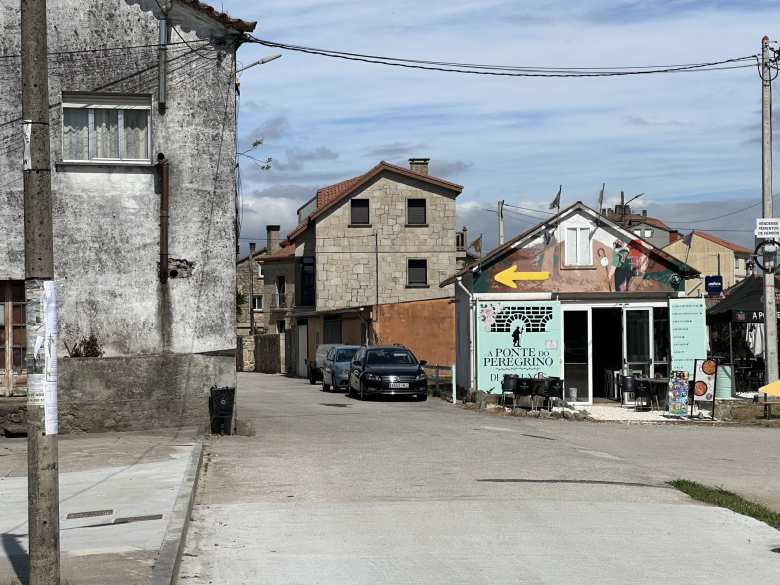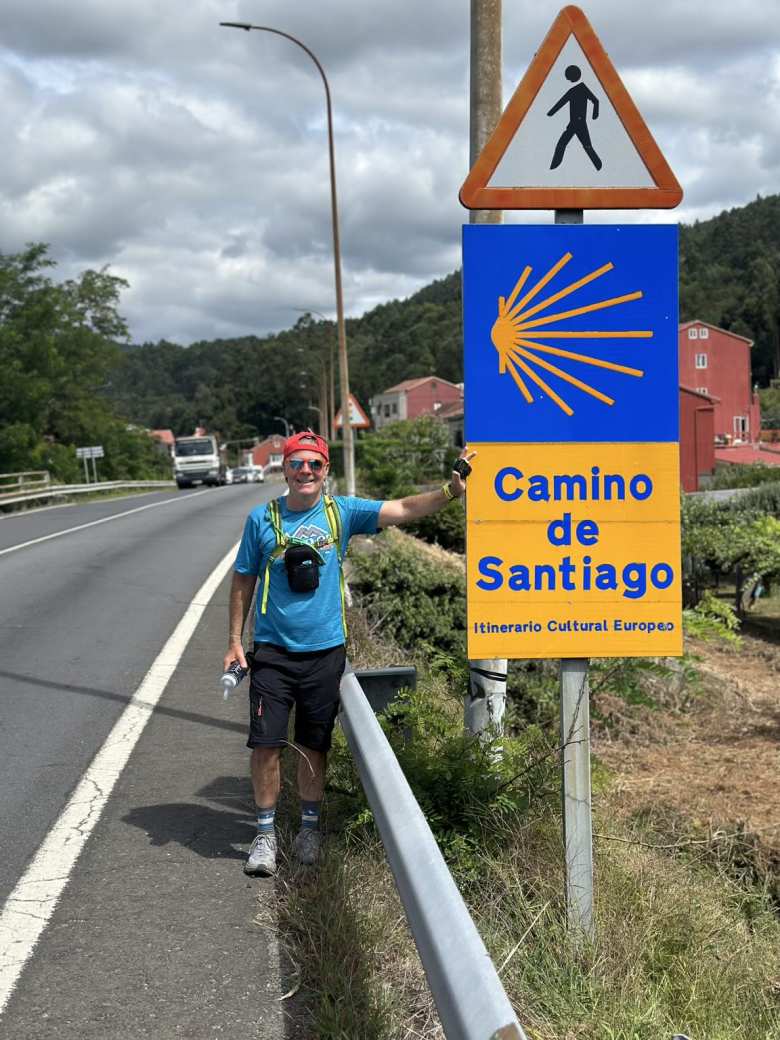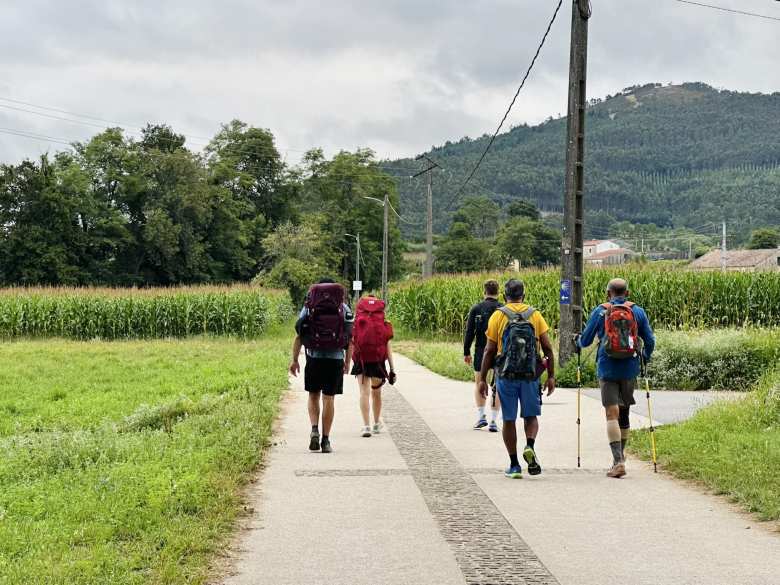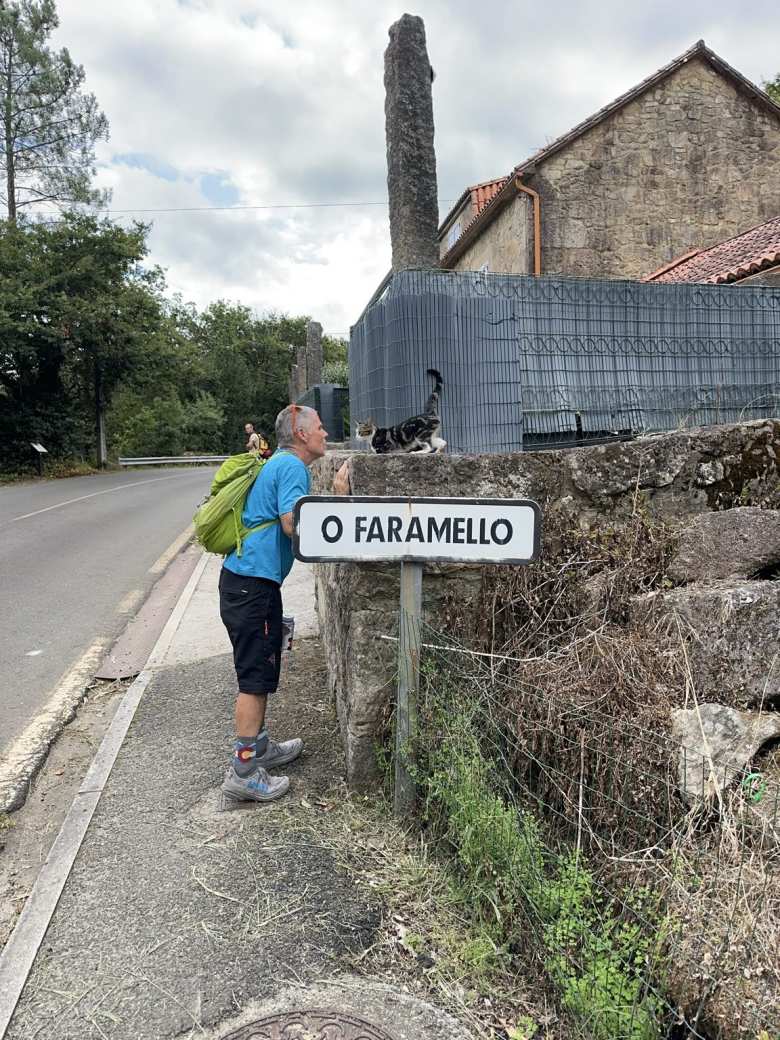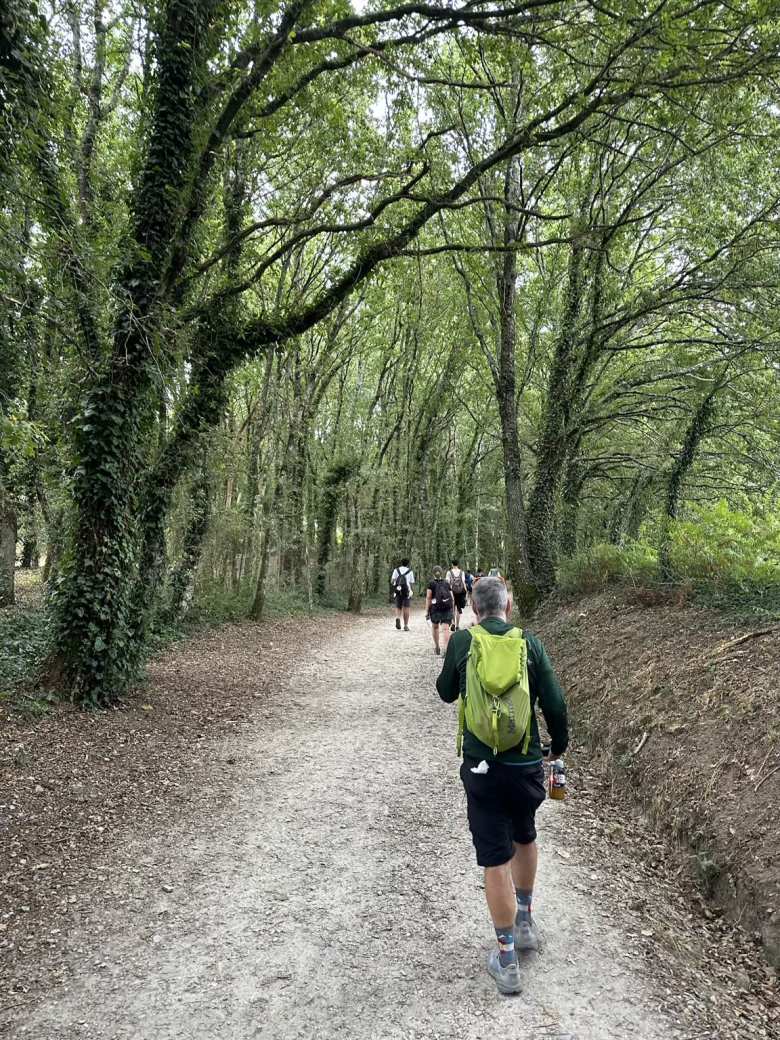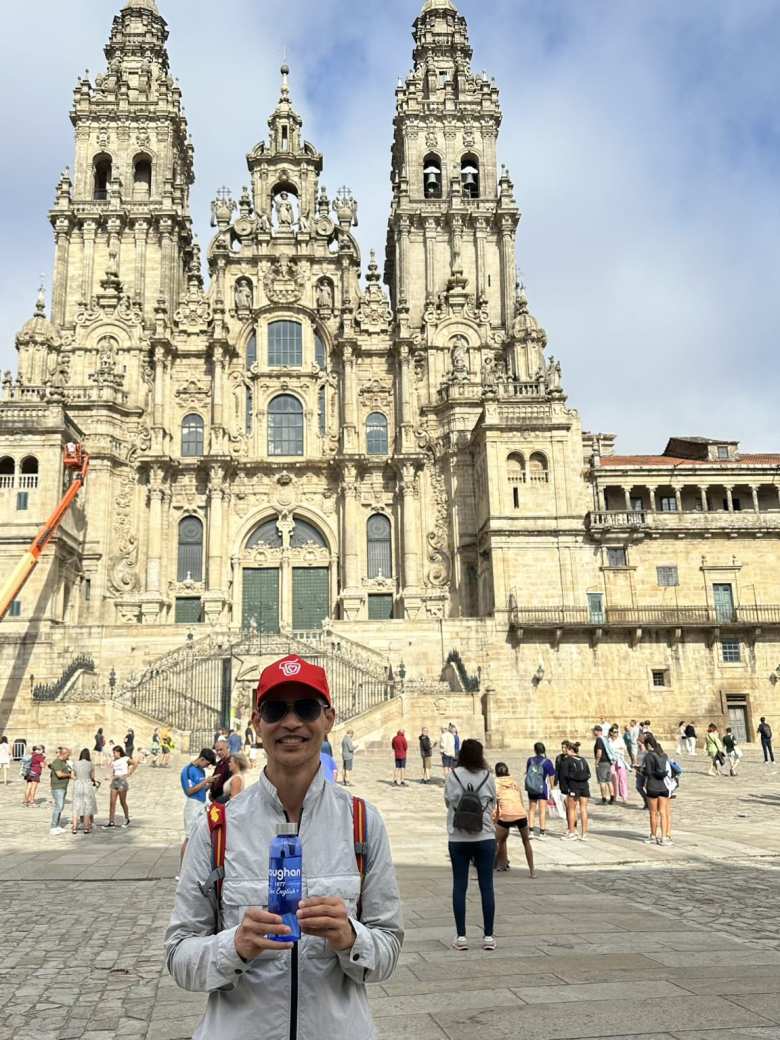Hiking the Variante Espiritual del Camino Portugués (No Boat Ride)
When my friend Eddie flew over from Colorado to visit Andrea and me, we had an adventure-packed week planned: completing a section of the Camino de Santiago, watching La Vuelta a España, and, of course, sharing some good food and stories. Eddie arrived in Porto on Monday morning, where we spent a leisurely afternoon exploring before heading back to Pontevedra to have dinner with Andrea. We rested up, eager to set off on a unique Camino experience the next day.
Last year, Andrea and I had previously completed the standard 70-kilometer Camino Portugués route from Pontevedra to Santiago in two days. So this time with Eddie, I was excited to try the Variante Espiritual, which would extend our journey to over 100 kilometers. This route features stunning landscapes, fewer crowds, and a touch of history. Most pilgrims opt for the scenic boat ride from Vilanova de Arousa to Pontecesures, but Eddie and I decided to hoof it instead and not be constrained by the infrequent boat ride hours.
Taking the road less traveled on this hike added a layer of mystery and adventure. I couldn’t find a single webpage or guide detailing the entire land route from Vilanova de Arousa to Pontecesures, which only heightened the allure. With each step, we were immersed in landscapes that felt untouched and unseen by most pilgrims. This uncharted path not only brought surprises around every corner but also provided us with a bit of extra challenge. In the end, it pushed our journey beyond 100 kilometers, making our Camino both something of a physical achievement and a journey of discovery.
Day 1: Pontevedra to Vilagarcía de Arousa
We set out on our journey around 9 a.m., a bit later than anticipated as I finished mapping our route. I used Garmin Connect to plan our way from Pontevedra to Vilagarcía de Arousa, syncing it to my Garmin Forerunner 645. This setup made navigation seamless compared to using the Buen Camino smartphone app, as it allowed me to keep my iPhone tucked away in my pocket—except for when I wanted to snap some photos, of course.
Due to the late start, I unconsciously set a brisk pace, which Eddie would later laugh about. It was much like the “Andrea speed” I had followed when hiking with her last year on our Camino.
Leaving Pontevedra, we passed through the picturesque fishing village of Combarro, known for its hórreos—raised stone granaries unique to Galicia. These weathered structures are built to keep grain safe from moisture and pests, and they dot the landscape along this part of the Camino.
From Combarro, we began a steady ascent through the village of Poio up to O Busto—a 7-kilometer climb with a 400-meter gain in elevation. Though long, the ascent was mostly gradual, with a few deceptive false summits. Fortunately, my Garmin’s elevation chart helped me prep Eddie for each section with comments like, “This isn’t the top; we’re only halfway there.” When we finally reached the summit, Eddie gave a dramatic bow, marking the end of the climb in humorous celebration.
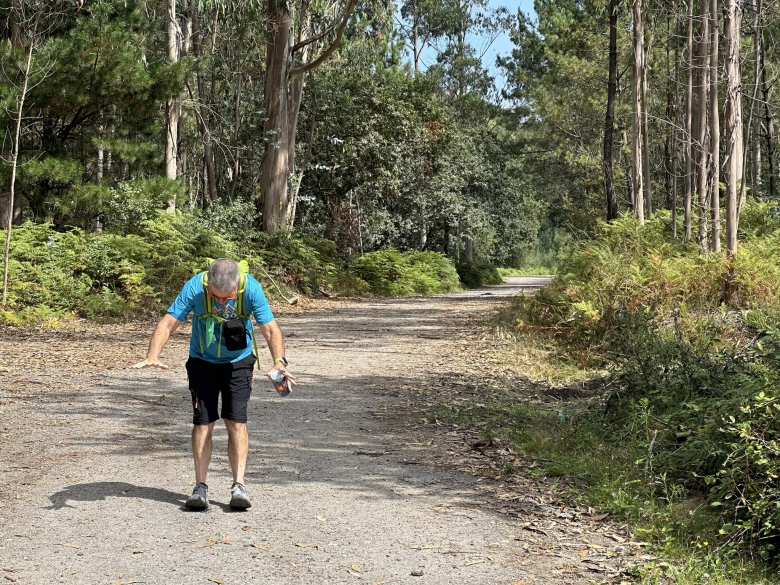
At 2:30 p.m., we were to have lunch at Andrea’s mother’s house in Vilanova de Arousa. Unfortunately, Eddie and I were well behind schedule, so Andrea picked us up in Meis after we had hiked through the gorgeous Ruta da Pedra e da Auga (“Route of Stone and Water”), a scenic trail featuring waterfalls, stone mills, and shaded paths lined with moss-covered rocks. The lush greenery was calming, and the forest sounds of the river and birds were the essence of peace. While it was still 14 km from Vilanova, it was a convenient pickup point for Andrea as it intersected her usual driving route from Pontevedra to her mom’s.
There we enjoyed a delicious Galician feast: empanada, tortilla (Spanish omelette), fresh salad, pulpo (octopus), and a variety of seafood dishes. Andrea’s mom is an excellent cook, and this was the perfect break!
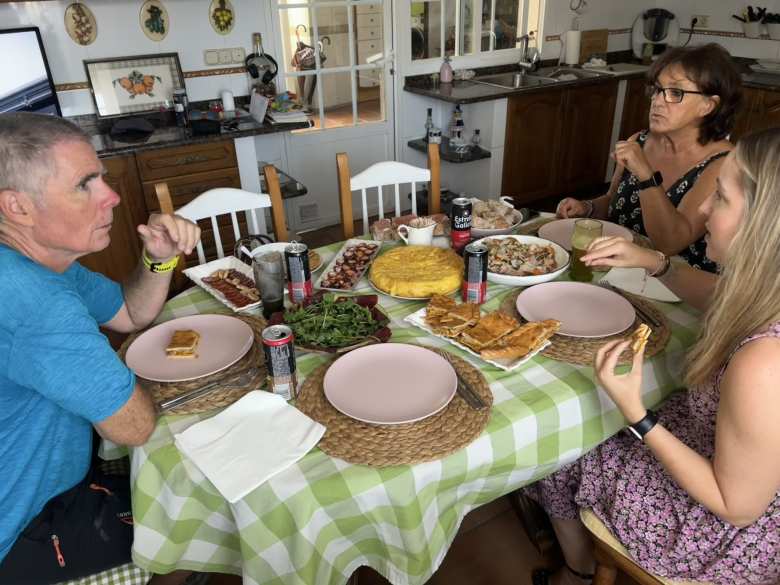
A couple of hours later, Eddie and I resumed our hike. We passed along the beaches, where a few dozen residents and vacationers relaxed or sunbathed, wandered through the center of Vilanova de Arousa, and continued for hours until we reached Vilagarcía de Arousa.
We took a refreshing break at Marina Vilagarcía, enjoying cold beers with a view of the harbor and the Atlantic. Then we carried on along more beaches until we arrived at our final destination for the day: Hotel Carril, located on the north side of Vilagarcía de Arousa. Our room overlooked the beach, the ocean, and a vibrant sunset—a picture-perfect end to our first day. We wrapped up with a fantastic dinner of salad, asparagus, and fried calamari at the hotel, which I’d highly recommend both for the stay and the food.
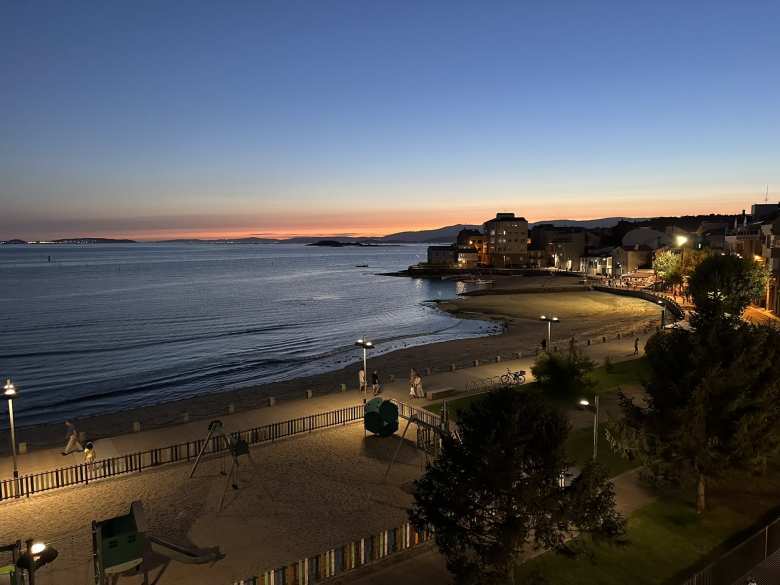
Day 2: Vilagarcía de Arousa to Padrón
We set out at 7:00 a.m., heading northwest in the darkness. Unfortunately, about 1.5 km into our hike, I missed a turn, landing us on the busy PO-548. This two-lane highway had only a narrow shoulder, so I used my phone’s flashlight to ensure drivers could see us. Despite running alongside the river, the road was far from ideal for walking. Thankfully, after another 1.5 km, we managed to turn off in O Campanario, veering eastward to rejoin the intended route displayed on my Garmin watch.
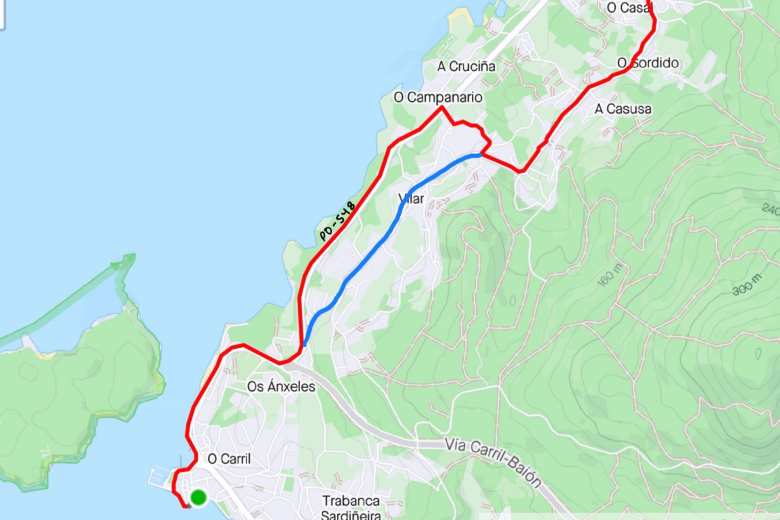
Back on track in the rolling foothills, we enjoyed quieter paths with ample sidewalks. By 8:30 a.m., we reached Gento Café-Bar in Catoira and stopped for coffee, orange juice, and a croissant, receiving a warm welcome from the friendly hostess.
The camino through Catoira felt magical—lush green forests, towering eucalyptus trees, and peaceful boardwalks tracing the river. Vineyards stretched over the rolling hills, inviting us to sample the renowned Albariño grapes. The peacefulness of this area was interrupted only by the occasional farmhouse and clusters of grapevines.
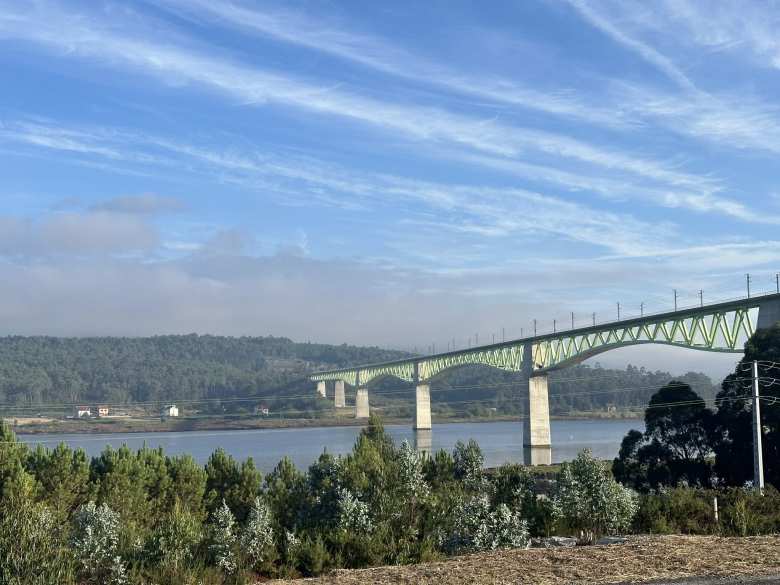
In the afternoon, we arrived in Pontecesures and paused at a local café-bar for bocadillos and empanadas, a perfect snack that only set us back 3.50€. From there, we continued on to Padrón, where we were greeted with La Vuelta a España festivities. A Carrefour representative handed us bright red caps (ideal for the race!), and we soon spotted the caravans and support vehicles for the event.
We continued to the northern part of Padrón, where I’d booked a room at Hotel Scala, conveniently located 2 km from the Cortizo Technology Campus, the start and finish point for the race and a spot where the cyclists would pass two additional times.
Upon arrival at Hotel Scala, we were thrilled to see the pro cycling teams staying there too. Buses for Soudal Quick-Step (competing as T-Rex – Quick-Step for the race) and Alpecin-Deceuninck, among others, filled the parking lot. Since check-in wasn’t until 3 p.m., we left our backpacks in a secure area and headed straight to the Cortizo Technology Campus to watch the race. I wrote about watching La Vuelta Stage 11 in this post.
After the event, we returned to the hotel to check in. To our surprise, we found ourselves sharing an elevator with Mikel Landa, my favorite Spanish cyclist, fresh off his race finish. He was currently in 5th place in the general classification.
Later, we stepped outside in search of dinner but quickly discovered that the nearest restaurants were a mile away. So we opted to dine at the hotel’s restaurant, feasting on hamburgers, fries, and pimientos de Padrón—a fitting choice, as we were in the hometown of this iconic Galician dish.
Day 3: Padrón to Santiago de Compostela
The next morning, we began hiking around 8:45 a.m., and we were immediately surrounded by other pilgrims. Nearly the entire way to Santiago de Compostela, fellow peregrinos filled the path, creating a lively and communal atmosphere.
The route offered a mix of urban streets and peaceful, forested paths. Along the way, we passed a variety of sights: chickens clucking by cornfields, turkeys, and plenty of friendly cats. We walked by ancient lavaderos—stone washhouses where people once gathered to wash clothes—and cruceiros, traditional stone crosses that mark routes and intersections, often adorned with intricate carvings.
The stop signs and poles along the path were plastered with stickers from all over the world, a testament to the diverse pilgrims who had walked this way before us. Around 12:30 p.m., we stopped at Albergue Aldea da Pedreira for drinks, taking a refreshing break.
As we drew closer to Santiago de Compostela, the number of pilgrims grew even more. We finally arrived in Santiago around 3:00 p.m. and settled in for a leisurely two-hour Spanish-style lunch of pizza, beer, and fries before continuing to the awe-inspiring Cathedral.
We spent the night in Santiago, giving us time to explore the city the next day before making our way back to Pontevedra.
Reflections and Recommendations
For those considering the Variante Espiritual, I wholeheartedly can recommend walking all of it instead of taking a boat from Vilanova de Arousa to Pontecesures. This segment is beautiful and rewarding for those interested in walking the full distance. The scenic beaches and green forests along this stretch are among the highlights of the Camino.
In total, we hiked 95 kilometers, plus 5 km extra to watch La Vuelta, making it a 100-kilometer journey—a true Camino experience! The official distance from Pontevedra to Santiago de Compostela along the Variante Espiritual is roughly 110 km, but Andrea had graciously driven us from Meis to Vilanova de Arousa, cutting off 14 km.
For peregrinos interested in doing a manageable 4-day hike along this route averaging 27 km/day, I’d suggest:
- Day 1: Pontevedra to Meis. There aren’t many places to stay in the Meis region, but there appears to be an albergue or hostel before and after the Ruta da Pedra e da Auga. You can use the Buen Camino app to locate them.
- Day 2: Meis to Vilagarcía de Arousa
- Day 3: Vilagarcía de Arousa to Padrón
- Day 4: Padrón to Santiago de Compostela
